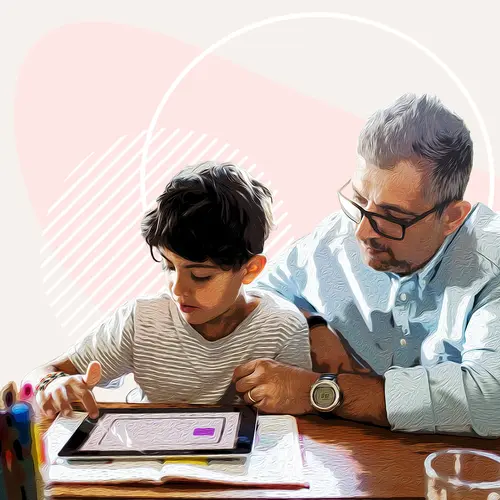Cooperative play is when children play together with shared goals. They may agree on rules and organize their play. It's the most complicated of the six stages of play.
What Are the Stages of Play?
In 1932, sociologist Mildren Parten identified six stages of children’s play. All kids develop differently, so there are no set ages for each type of play.
Unoccupied play. This is the first stage and prepares your baby for the others. Unoccupied play happens when your child experiences the world through their senses. They explore the world around them without any sort of organization. You may notice your baby picking up an object and chewing on it before throwing it down and moving on to another one.
Solitary play. Your child is engaging in solitary play when they play on their own without paying attention to others. Your child is exploring, mastering new skills, and preparing to play with others.
Onlooker play. You may think your child is feeling lonely or left out if you notice them sitting back and watching other children. But your child is learning a lot by watching during this stage. This is a normal part of play development. Your child is learning about social rules and relationships as well as different ways of playing.
Parallel play. When your child is playing near another child but not with them, they're engaging in parallel play. There is no interaction. At this stage, your child is still getting ready to play with other children. They’re still practicing skills and building up to cooperative play.
Associative play. This is when your child starts to show interest in other children as playmates. They’re starting to practice what they've learned in the earlier stages of play. Children in this stage may all be playing in the same area and interacting with each other. But they aren't organizing their play around a common goal.
Cooperative play. In this final stage, your child is working with other kids toward a shared goal. Children will have rules about how to play and assigned roles. There may be a lot of arguing as they learn to share, take turns, and negotiate.
Benefits of Cooperative Play
Play is an essential part of your child's healthy development. Some of the benefits of cooperative play include:
- Improved language skills
- Improved attention
- Self-regulation
- Better peer relationships
- Learning to work with peers
- Adapting to the needs of others
- Learning to compromise
- Learning to resolve conflicts
- Improved physical development
- Developing problem-solving skills
How to Encourage Cooperative Play
Getting your child to play cooperatively isn't always easy. The key to success is giving each child a role so they have to work together. Here are some tips for encouraging cooperative play at home:
Plant a garden. Let your child and their siblings or friends plan a small garden. They'll have to work together to decide what to plant and where to plant it. Encourage them to take on different roles. Be sure to point out everyone's contribution when the plants start growing.
Create an animal hospital. Let your children drag out all of their stuffed animals and set up a veterinary clinic. Give them a clipboard, paper, and crayons to add writing practice to their game. The children can take turns being the veterinarian, the pet owner, the receptionist, and maybe even the pet.
Put on a play. Bring out the dress-up clothes and let your kids put on a play. They can act out a classic fairy tale or their favorite modern book. Deciding who plays which role will give them lots of practice in negotiating and cooperating.
Have a parade. Making their own musical instruments will give your kids a chance to practice their creativity. Marching in a parade with their instruments will encourage them to work with their friends toward a common goal.

